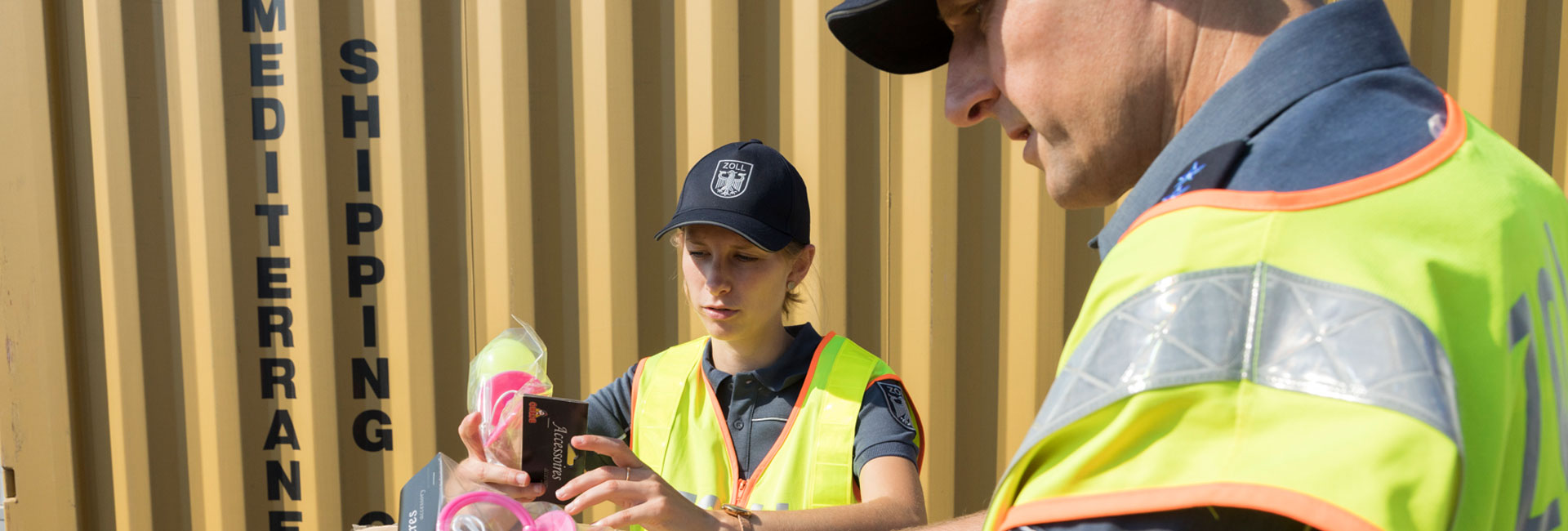"Port staff must possess specialist expertise"
The port is the backbone of the national economy in Germany, said Sönke Fock, Chief Executive of the Hamburg Employment Agency ...

Every November, many of the 1,000 or so applicants will be somewhat anxious as they take their places. Aiming to start vocational training with the Customs, their written applications have already taken them through the first selection round. They had sent these direct to the HZA - main Customs office – where they wish to do their training. Now they face a written exam lasting between three and four hours. The next few weeks will see the decision on who has cleared this hurdle and will be invited to the oral exam. This year, Customs will be filling 65 to 75 clerical-grade places, and at executive level, between 33 and 45. That can change from year to year, however. “We have a sophisticated selection process. Good general knowledge is required, and applicants also need a high standard of mathematics and German. In addition, abstract thinking,” says Mathias Bock, Head Trainer at HZA Hamburg. All this is covered in the written exam.
Bock recommends every student considering starting the training to closely scrutinize the occupation beforehand. “Each of them needs to be aware that a great deal of the job relates to administrative tasks.
A Customs official’s duties are extremely varied,” says Bock. The head trainer points out that an interest in the commercial aspects is required. The right physique is also required. „Every applicant should also be aware that in this job, the focus is on working with people. For this, Customs officials need a high level of social competence and good skills as communicators. Strong empathy is required, on the one hand, plus a pronounced ability to assert oneself,” stresses Bock.
„A Customs
official’s duties
are
extremely varied“
The Customs tests whether these skills are present in oral selection processes, normally during the first three months of the year. The program then includes round-table discussions, role playing, lectures and an interview. Depending on grade, those qualifying for a post will receive a three-year training for either the clerical grade or - with study at university – for the executive grade. “Irrespective of grade, everybody receives identical training in the areas of clearance, case handling and enforcement. There’s no specialization on specific areas at this stage. Only on completing it, may the ‘graduates’ indicate where they wish to be employed,” explains head trainer Bock.
For the executive grade, training annually commences on 1 August with a theory block at Helmut Schmidt University, or for the clerical grade at one of the Customs schools, for example in Rostock or at Plessow, near Potsdam. Many of the trainees normally meet each other for the first time there. They can study in groups and enjoy campus and school life. “During the pandemic of recent years, we have had to adapt the previous theoretical training. Currently, many trainees are doing distance learning. That will change once again as soon as the opportunity arises. Whether we shall still have to start with distance training remains to be seen,” says Bock. Maybe all new trainees will be able to start their careers in-person in the classroom.